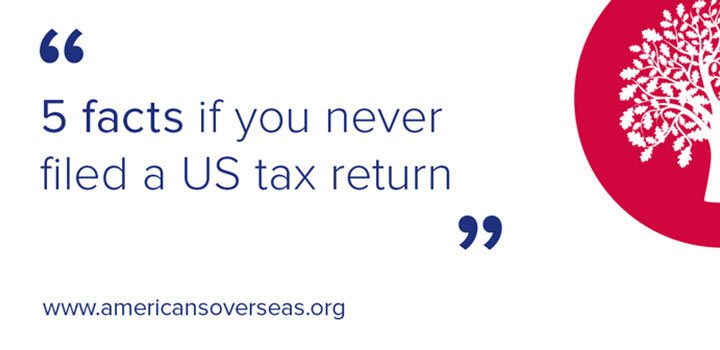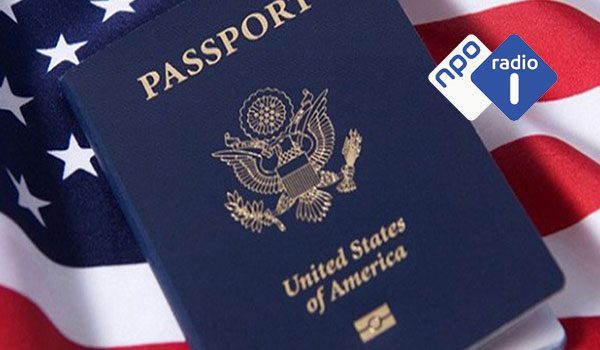
American tax authority IRS and Americans Overseas

The Internal Revenue Service, commonly known as the IRS, is the federal tax authority of the United States. Americans living Overseas are also subject to the IRS due to their tax filing obligations.
U.S. Tax Obligations
If you were born in the United States, have an American parent, or hold (or have held) a Green Card, it’s likely that you have a U.S. tax filing obligation. The U.S. is the only developed country in the world that enforces tax obligations for “U.S. persons” regardless of where they live or work.
All U.S. citizens are required to file tax returns and report foreign bank accounts, no matter where they reside. This is mandated by the U.S. FATCA law, supported by intergovernmental agreements between the EU states and the United States.
How to File Taxes with the IRS
If you’ve never filed a U.S. tax return, you can use a process called the “Streamlined Procedure.” This straightforward method allows you to file returns for the past three years and include a statement explaining your prior lack of awareness.
No penalties are imposed for failing to file earlier returns under this procedure. If you wish to renounce your citizenship, you will need to file for the past five years instead of three and complete a renunciation form. Be cautious: this decision is irreversible. If you do not renounce, you are required to file annual tax returns with the IRS.
Banks Threatening to Close or Freeze Accounts
Banks are obligated to share your information with the U.S. IRS. You may have already received one or more letters from your bank asking you to confirm your (dual) American nationality by providing a Social Security Number (SSN).
An SSN is the U.S. equivalent of a BSN (Citizen Service Number). If you fail to respond, your bank may freeze or close your account and may discontinue additional services such as mortgages, pensions, or investment products.
What Are the Risks of the IRS Pursuing Me?
Unfortunately, we cannot provide a definitive answer to this question. We aim to inform and advise you as objectively as possible. The fact remains that you have a tax obligation, even if you are a U.S. citizen living abroad.
We aim to increase awareness of this obligation and guide you toward expert advice to help you fulfill your duty. The IRS increasingly requires financial institutions to report account holder information.
Does the IRS Know About My Financial Assets?
Yes. Due to FATCA legislation, the IRS has likely been informed about your financial assets and interests via your bank. Many Americans living and working abroad are unaware of their U.S. tax obligations.
Are There IRS Programs for People Unaware of Their Tax Obligations?
Yes, the IRS offers programs for Americans abroad who were unaware of their U.S. tax obligations.
Programs like the Streamlined Procedure are available for expats who have not filed U.S. tax returns. However, filing through these programs is not automatic, so it is crucial to consult a qualified American tax advisor.
These programs offer significant benefits, such as reduced filing requirements and waived penalties.
Will I Be Taxed Twice?
Generally not. Taxes already paid abroad can often be credited against U.S. taxes. In most cases, this means that no additional tax is owed.
Can I Renounce U.S. Citizenship Without Filing Taxes?
No. While you can renounce your U.S. citizenship, it does not exempt you from your tax obligations. To renounce, you must file Form 8854, which requires confirmation that all tax filings have been submitted.
If you fail to meet these requirements, you may still renounce, but the IRS will not release you from your obligations until all filings are complete up to the date of renunciation.
More Questions About the IRS and U.S. Tax Obligations?
As Americans living abroad, we’ve learned through experience about the tax obligations imposed by the U.S. government. That’s why we’re here to help.
We founded Americans Overseas to provide clear, accurate information and to help alleviate unnecessary panic. We offer free, no-obligation assistance and have a network of affordable professionals (accountants) who can help you meet your tax obligations.
For more information on the IRS and U.S. tax obligations, contact us at Americans Overseas.
Contact us for more information
Source – IRS (Internal Revenue Service):
- U.S. tax guidelines: Visit the official IRS website for more information.






